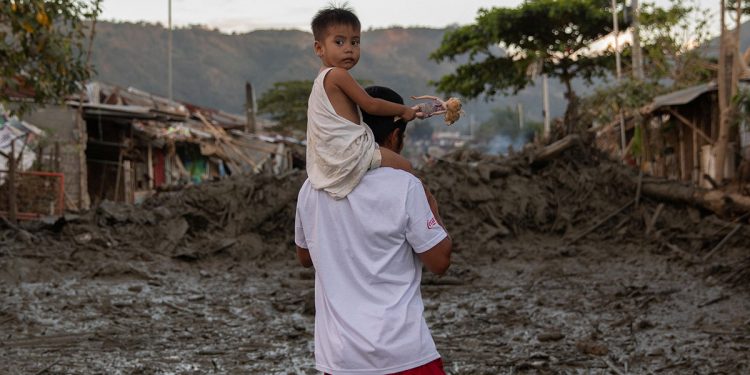Climate change has made the world a riskier place.
The destruction wrought by heatwaves, droughts, hurricanes, and coastal flooding doesn’t stop with the toll on human lives and livelihoods—it can also have deep consequences for a country’s finances.
Recent IMF staff research has found that a country’s vulnerability or resilience to climate change can have a direct effect on its creditworthiness, its costs of borrowing, and, ultimately, the likelihood it might default on its sovereign debt.
The economic consequences of climate change have been known for years, but research on how climate change affects sovereign risk has been limited.
These findings provide evidence on the relationship between climate change and sovereign credit ratings. The research builds on similar analysis that, for the first time, links climate change vulnerability to sovereign default risk. Our research has similarly found a connection between climate shocks and sovereign bond yields.
One recurring theme amid all these findings is that financial risks created by climate change are felt more acutely by developing economies, especially those that are not adequately prepared, including because of the lack of policy space, to address climate shocks.
A climate credit score
A better understanding of how climate change affects sovereign credit ratings could provide valuable guidance on how much governments and firms can safely borrow and how much it will cost them.
To measure vulnerability and resilience, we use a dataset of climate change vulnerability and resilience developed by the Notre Dame Global Adaptation Initiative. The data capture a country’s overall susceptibility to climate-related disruptions and capacity to deal with the consequences of climate change.

Using a panel of 67 countries over a period of 1995–2017, we find climate change vulnerability has adverse effects on sovereign credit ratings, even after taking into account conventional macroeconomic determinants of sovereign bond spreads and credit worthiness.
An increase of 10 percentage points in climate change vulnerability is associated with an increase of about 30 basis points in long-term (10-year) government bond spreads relative to the US benchmark in our sample of countries. On the other hand, we find that an improvement of 10 percentage points in climate change resilience is associated with a decrease of 7.5 basis points in long-term government bond spreads.
However, when the sample is split into different country groups, the results show a considerable contrast between advanced and developing economies.
Climate change vulnerability has no significant impact on bond spreads and credit ratings in advanced economies, but the effect on emerging markets and developing economies is much greater—due largely to weaker capacity to adapt to and mitigate the consequences of climate change.
An increase of 10 percentage points in climate change vulnerability is associated with an increase of over 150 basis points in long-term government bond spreads of emerging markets and developing economies, while an improvement of 10 percentage points in climate change resilience is associated with a decrease of 37.5 basis points in bond spreads.
On average, that is five times more than when all countries are counted. Furthermore, the difference between countries in the 25th and 75th quintile amounts to 233 basis points for climate change vulnerability and 56 basis points for climate change resilience.
Debt default
Using the same country-specific data on climate change vulnerability and resilience, a similar trend was found when looking at the link between climate change and sovereign default.
Using a panel of 116 countries over the same 1995–2017 time period, we find that countries with greater vulnerability to climate change face a higher likelihood of debt default compared to more climate resilient countries.
Our empirical results also indicate that climate change resilience can decrease the probability of sovereign debt default compared to those countries more vulnerable to climate change, after controlling for conventional determinants of sovereign defaults.
Building resilience
Without adequate action, climate change is an inevitable reality across the world. Rising temperatures, changing weather patterns, melting glaciers, intensifying storms and rising sea levels undoubtedly create vulnerabilities, especially in low-income countries.
As countries seek a sustainable path of recovery from the effects of the COVID-19 pandemic, the benefits of climate resilience are clear. In particular, developing economies with limited fiscal capacity could benefit from alternative instruments including catastrophe insurance and debt-for-nature swaps designed to mobilize resources for investments in resilient infrastructure and environmental conservation measures while reducing the debt burden.
Meanwhile, pursuing cost-effective climate change mitigation and adaption strategies; building structural resilience to climate risks, including through resilient infrastructure; strengthening financial resilience through fiscal buffers and insurance schemes; and improving economic diversification to reduce excessive reliance on climate-sensitive sectors can ease the strain of climate change on public finances and reduce the cost of borrowing associated with lower credit ratings.








